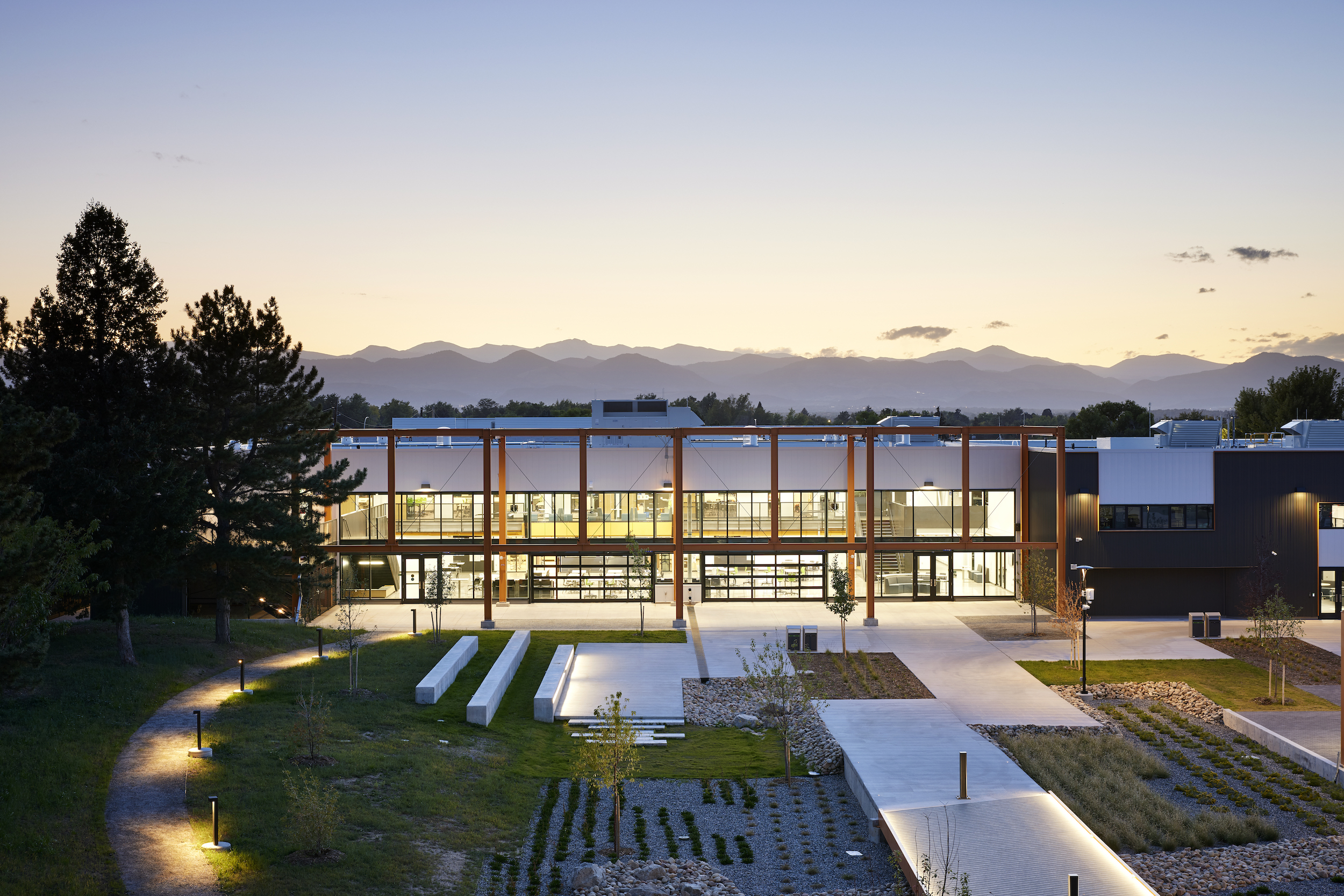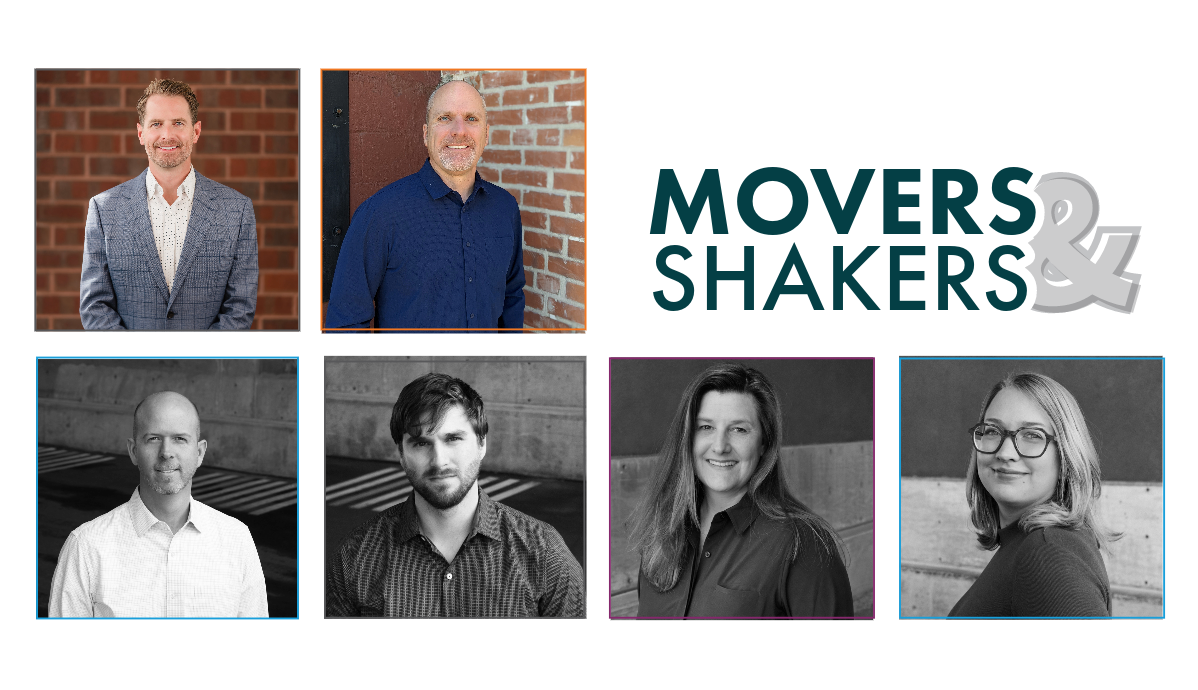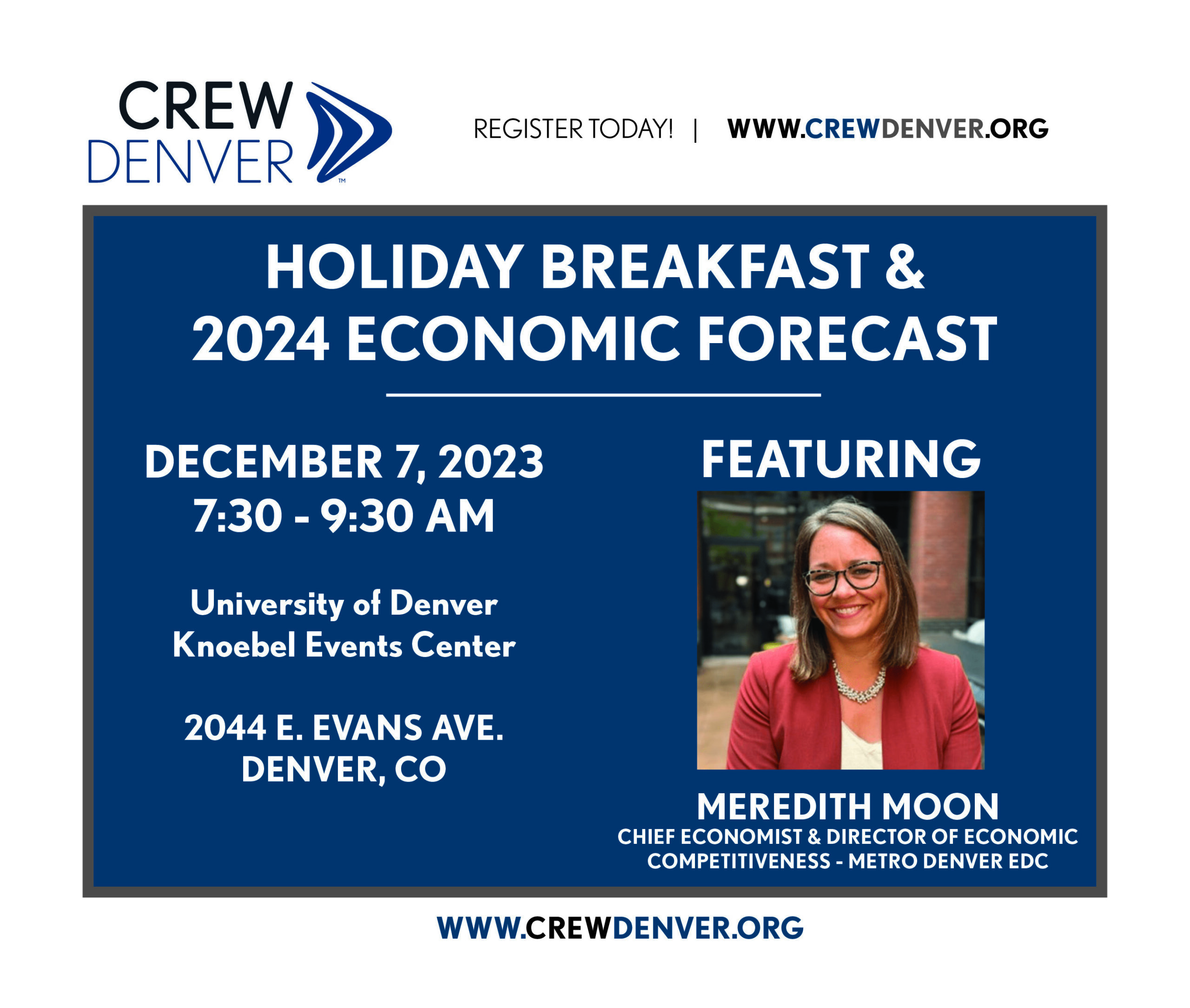Although women have made tremendous inroads in commercial real estate over the past two decades, they still account for less than 37 percent of the industry positions. This percentage has not changed much over the last 15 years.
Colorado’s business market and particularly the commercial real estate industry have been fortunate to attract and retain some very talented, highly respected female leaders over the course of the past few decades. Leading that class of high-profile executives are three women who have truly earned and claimed their seats at the table in their respective organizations and industries: Susie Finley, founder and principal, Ascent Living Communities; Katie Kruger, senior managing director, Colorado market leader, CBRE; Rachel Marion, CEO, Denver Metro Commercial Association of Realtors.
Mile High CRE had an opportunity to hear from these three leaders and get their insights on their respective industries, careers, and why it’s important to cultivate the next generation of female leaders.
1. How did you get your start in this business?
SF: I am one of those unique individuals who – nearly 25 years later – is still doing what I majored in and set out to do. As a freshman at Ohio State University, I thought that I wanted to work with children with disabilities which is what my mom had done as a school psychologist. After doing some student teaching my freshman year, I realized that it just wasn’t resonating with me and I started taking family relations and human development classes, as well as gerontology classes. I had an amazing professor who I really connected with and who, during my senior year, helped me earn an internship at an assisted living community in Columbus, Ohio. I loved that experience and after I completed it, I knew two things: I wanted to work in senior living, and I wanted to be in a role where I could affect change. I was fortunate enough to be hired by a private owner in Cleveland where I grew up and started working with him right after college and ended up getting my nursing home administrator’s license under him as well. That was 1998.
KK: I grew up in rural Alaska and believe in starting where you are. That our careers (and life) are organized like a ladder. That we always have a rung right in front of us, and if we systematically put energy into something and climb, we can get to a new, higher and better place. In my first job out of college, I was hired to do community branding and design. I did this but also took on projects that taught me the master-planned community due diligence processes with local jurisdictions. Both opportunities were there in the company. One job I was being paid to do right then, and the other I would be compensated for soon after. With the mindset of life-long learning, my colleagues provided an attractive student/teacher ratio and at only the cost of my time. With this realization, I learned that we can come from anywhere and become anything.
RM: I took a fairly circuitous path to my current role as CEO of DMCAR, which should serve as encouragement to any women out there thinking about a career pivot into the commercial real estate industry. I am a licensed attorney who got her start in energy law but has spent the past decade working in political advocacy, with a specific emphasis in the transportation, real estate, and sustainability sectors. Most recently, I led the government affairs team at Denver International Airport, which included policy work at the federal, state, and local levels.
2. What attracted you most to the position you are in today?
SF: After spending the first 15 years of my career working for larger companies, I realized that I wanted to be in an environment where there weren’t multiple layers and where I could make decisions and changes that were not governed by a large publicly-traded company. In 2013, I had the opportunity to leave Brookdale after 10 years with them and join Ascent Living Communities with the vision of growing a senior living company at a slow and steady pace where we could be hands-on owners with a local touch. Nine years later, I feel like we have successfully achieved that endeavor and we are very proud of the communities we have today, as well as the decision to stay local to Colorado rather than expand out of state where we will dilute ourselves and our home office team.
KK: Leading CBRE in Colorado provides the most significant opportunity to impact commercial real estate in our local markets. CBRE is the global front runner for the industry with our corporate leadership steeped in shrewd financial decision-making and a notable focus on integrity. In Colorado alone, we have nearly 1,000 people who provide service in brokerage, valuation, debt and structured finance, property management and construction management. When considering all of these together, CBRE touches more properties in the state than many of our public service companies. The company supports investment in new ideas and endless topics for a life-long learner.
RM: I was attracted to this role because of the way in which commercial real estate will shape the future of this city I love. We are at a pivotal moment in this city, and in cities around the world, where we face difficult decisions about what our cities look like and who they are for. Real estate is at the heart of those decisions. Challenges, including a tightening labor market, rising inflation, an ever-evolving retail landscape, and supply chain disruption, are occurring alongside opportunities to innovate within our office spaces, think differently on environmental and social issues, build inclusively, and revolutionize the way we design our cities for decades to come.
3. You have earned your position as a business and industry leader. What’s a lesson that you’ve learned that’s unique to being a leader and being female?
SF: I would say the biggest lesson that I have learned about being a leader is to always hire people who are smarter than you in their areas of expertise and also, that if the wheels fall off if I am not there, I have not built a stable enterprise. As far as being a leader and being female, I think it has really been to my advantage in my industry, especially during my first 15 years as an executive director. The majority of the teams at senior living communities are female, so I always found it easy to resonate and connect with them as well as be respected. I’ve always led my team with transparency and wearing my heart on my sleeve and my team became like family to me. We were always able to support each other through many of life’s challenges.
KK: I recently led a study called What Women Want In Commercial Real Estate, and, after more than 80 hours of in-depth interviews with women and men, we learned that what women want is really what all people want. Today, several of the industry’s leading companies are working to thwart marginalization and discrimination head-on. Industry-wide, what remains are subtle nuanced issues with prioritizing family, respecting men and women for their leadership role in the home, and how we view pregnancy in the workplace. One way I support new advancement is to be generous with the influence I have at this stage in my career. If someone wants to meet early in the morning or later in the evening, I am the one to speak up about commitment to family. As many men as women thank me for curbing meetings that run over and interfere with things like kids’ pick-up time.
RM: Emotional intelligence, empathy, and the willingness to share power are just as valuable within a leader as ambition, competitiveness, and assertiveness.
4. What are some of the challenges and obstacles you have faced as a female in this industry?
SF: In the role I am in now, where I am no longer operating a specific community, I have much more involvement at the real estate, financial, banking side of the business. I don’t feel like this has been a challenge, it has just been different than my days as an operator of a singular community. My biggest obstacle, which is now pretty far back in the rearview mirror, was starting in this industry at such a young age. I was probably one of the youngest nursing home administrators getting my license when I was just 22 years old. I remember always being asked by adult children and residents, “how old are you?” and “are you even old enough to be running this community?” I probably wasn’t at the time as I had so much to learn. I always felt like I needed to prove myself and gain the respect of my teams and my residents, which I did successfully.
KK: Today, I work to advance humanity in the workplace. The industry has a long history of thinking of each other as talent; it is time to think of team members as the most exceptional human beings we can find. If the goal for our industry is to be more diverse, we must go beyond compliance and into deep commitment. It is worth considering that there is a reason that an exceptional human being is extraordinary and maybe we should not shut off a significant percentage of their person. It is a commitment to the diverse candidate, as well as the diverse thinking each provides for the company.
RM: I am a big believer that words matter, so rather than talking about “challenges” or “obstacles,” I would love to talk about “opportunities.” In that vein, I think the biggest opportunity for women across all industries lies in supporting and championing other women, especially BIPOC women. This begins with being impeccable with the words we choose when we talk to and about other women. It also means ensuring women are at decision-making tables, fighting for our female peers to receive promotions and raises, and being intentional about appropriate attribution and recognition of hard work and good ideas.
5. What’s the best advice you’ve received during your career?
SF: Going back to an earlier question, I said if the wheels fall off if I am not there, I have not built a stable enterprise. I truly believe this to be true. Over the years, I have learned that I can not and should not control everything, that I need to train and mentor my teams so that they can be an extension of my vision and culture. In Senior Living, we are a 24/7/365 operation and the decision that a caregiver makes at 3 a.m. is an extension of the culture that we have built as a company. That takes a lot of trust.
KK: Think about your home life as a business. When you have a leadership role in the home, you are faced with revenue, expenses, insurance, staff (potentially), liability, goals, etc. In our home, once a week we hold Family Meeting, and the agenda includes a review of schedules for the upcoming week, issues management and finances. With two small children, matching up calendars with my working husband is critical. The issues management agenda item deescalates problems because 1) there is a designated time each week to talk and listen, and 2) not addressing problems in the moment allows high emotion to level out. Including time to cover finances maintains a household connection to what we all are working for and typically accentuates the celebratory goals of new material things and time off. I have learned that being conditioned for my climb means being physically and mentally supported by a well-run homelife.
RM: “The best leaders don’t always have the right answers, but rather ask the right questions.”
6. Encouraging more young women to join, and stay, in commercial real estate is crucial to cultivating a new generation of leaders. Why is it important that we have more women in leadership roles and how do we encourage that?
SF: I believe that empathy is a huge part of being a successful leader. As women, we often tend to be more emotional and caring. Nurturing is often second nature to us. Senior Living can be considered real estate by some but that is not what it is to us. It is as much of a people business as there is and being present and being able to connect with our residents and families is a huge part of our success. I love seeing young people interested in senior living and love the idea of mentoring those that want to explore this path for their future careers.
KK: To bring together the most extraordinary people, we must fish from the whole pond. Diverse candidates often have a different ladder and different climb. Surrounding people with not just one person but two key support people creates the best outcomes. For years, I have reserved 100, 30-minute meeting blocks on my calendar to meet with and sponsor young people looking to advance themselves in any career. I was a sponsor in that I shared all of my business contacts and helped many young people get from the larger stack of job candidate resumes into the few my executive colleagues would review closely. Today I share a mentor contact as well. This second resource is the insider or the work “family” member who can answer silly questions and provide encouragement during challenging times at work. With these two resources, people are far more likely to not just grab the first rung but hold on and climb.
RM: Frankly, encouraging is easy; creating an ecosystem that authentically supports individuals and sets them up to succeed is a much more difficult, and a much more valuable endeavor. I discussed some of the ways in which to do that above. It is critically important for more women and more people of color to succeed within the commercial real estate industry, not just because it is “the right thing to do,” but because we know diverse perspectives within a business are directly correlated with innovation and economic success. In fact, a 2019 study by McKinsey found that companies in the top quartile for diversity on executive teams financially outperformed those with less diverse leadership by up to 36%.









